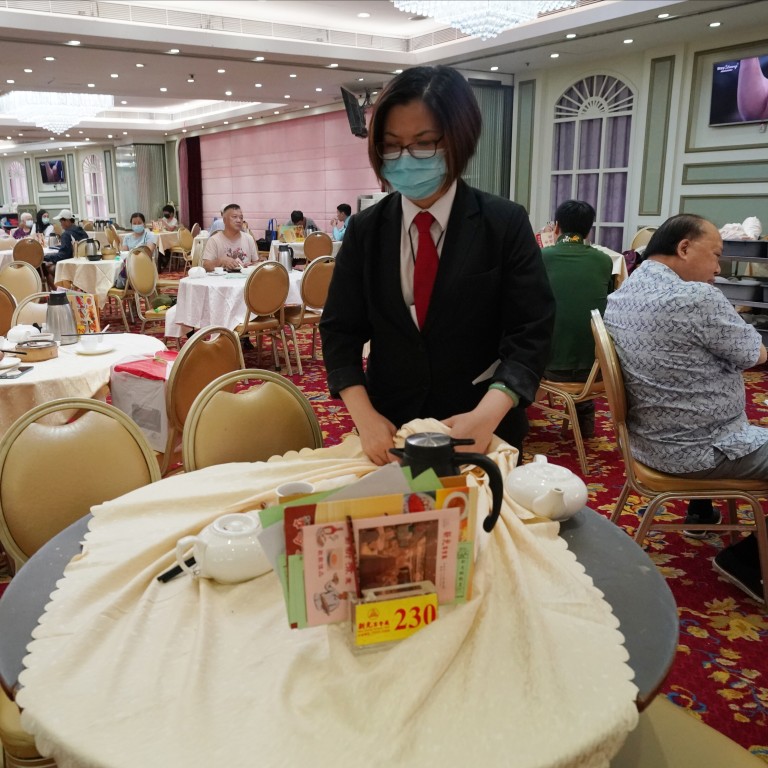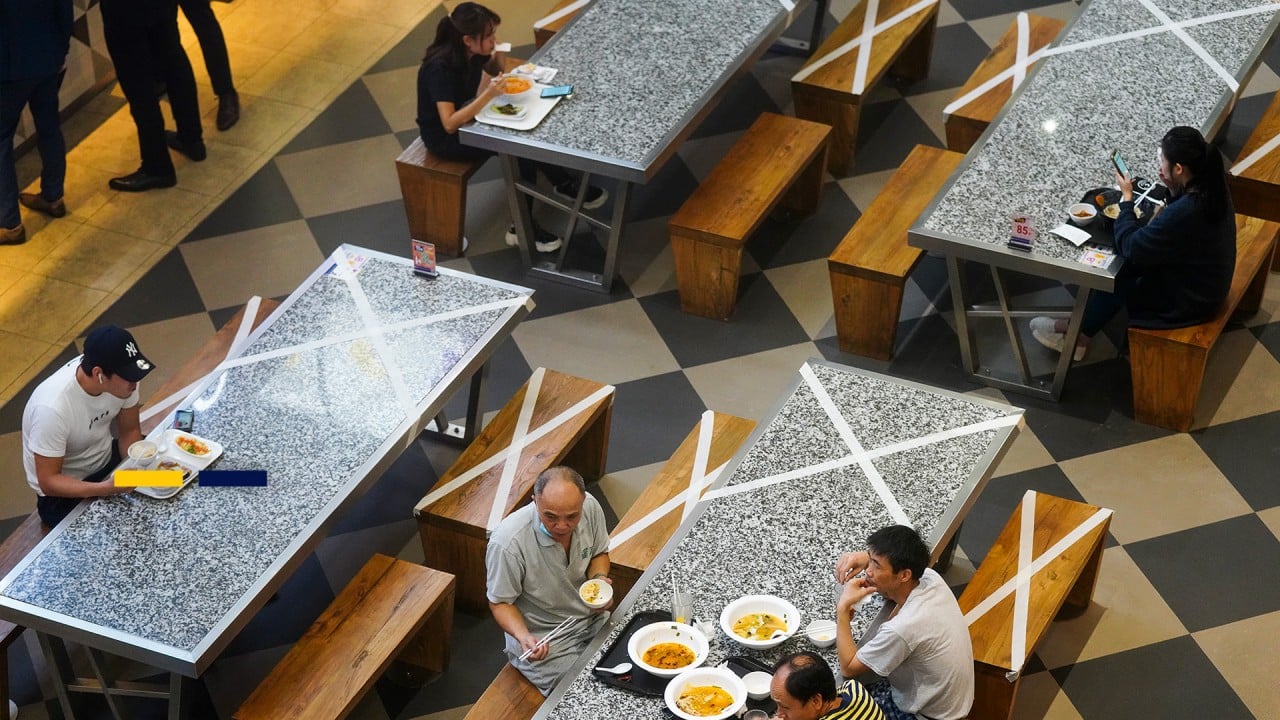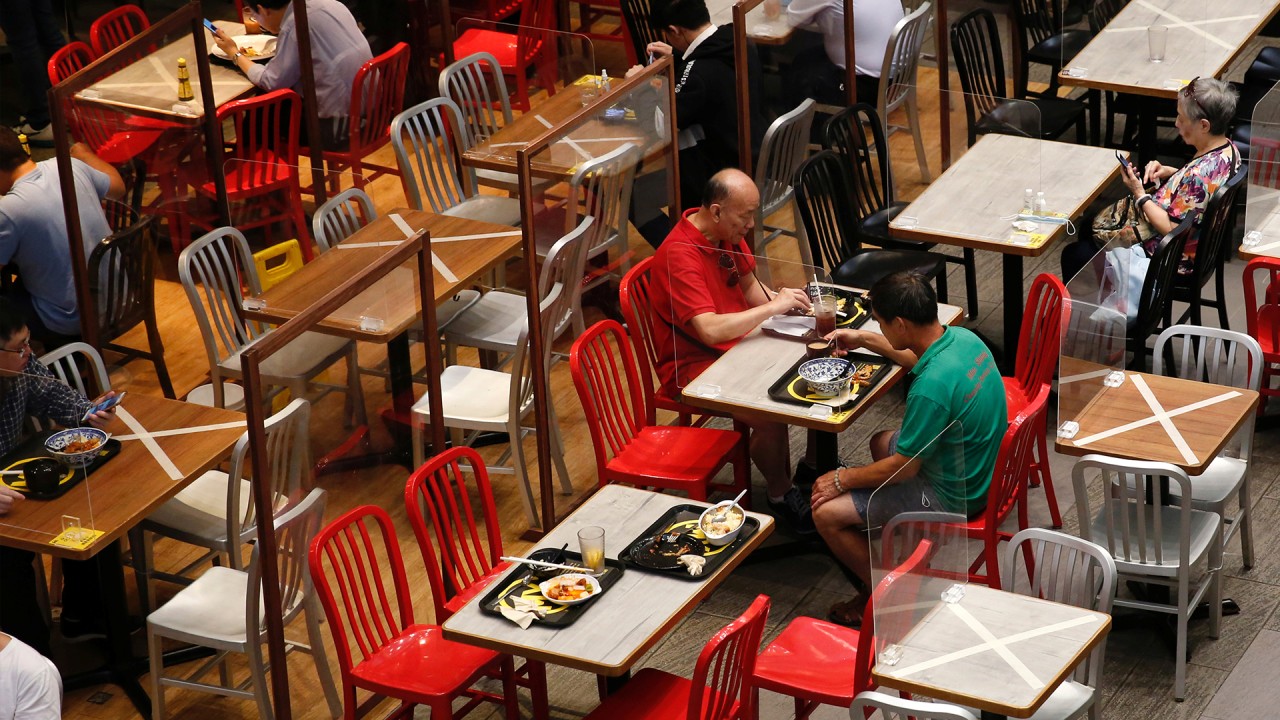
Hong Kong third wave: return to common sense and get people back to work
- We have learned much about the virus, and we need to play the odds we have learned in order to stop crippling our economy and avert the worst recession in modern times
- Risk can never be eliminated, but we must be willing to accept some pain as we try to restart our economy and get Hong Kong moving again
Hong Kong people have been good at wearing masks, washing hands, keeping distance, being outside and generally avoiding mass gatherings – the virus’ best friend. We’ve learned a lot of lessons the hard way.
The Hong Kong medical authorities are good at treating Covid-19 using a cocktail of drug therapies. Early intervention, even while asymptomatic, is vital. Vaccines are unlikely to help much, except psychologically. When they come, they will be used as an excuse to open up the economy.

03:13
Hong Kong bans all dine-in services at restaurants in attempt to contain third wave of Covid-19
Social distancing of two metres compared to one reduces the potential viral load by up to 10 times, but 10 times a very small original risk. UK research shows that the 3,000 droplets in a cough can travel 2 metres or more, but the risk of a high viral dosage is low if you are in that zone for less than 15 minutes. Smart social distancing allows restaurants to have more tables.
Bureaucracies display a kind of obsessive-compulsive disorder when something works – in this case masks – and run out of imagination and common sense. The Transport Department is allowing the bus companies to reduce the frequency of services. Why? If aircraft have to operate with limited loads, why not the buses?

02:04
Coronavirus: Hong Kong to limit public gatherings to two people and ban dining at restaurants
No one in Hong Kong under 30 has died of Covid, and one under 50. Children have a greater chance of getting killed on the way to school than under the odds of them dying from the virus. The harm to this generation of not going to school, doing their exams or playing with their mates far outweighs the low risk of harm to adults. The policy to close education and playgrounds defies common sense.
The virus exists to replicate, but it dies when its host dies. It will eventually evolve into a regular survivable flu – annoying, debilitating, but not fatal. In Hong Kong, 47 per cent of cases have been hospitalised but just 0.8 per cent of cases have died. We know which adults are vulnerable and we can ring fence them until they are vaccinated or the pandemic has passed.
We know enough about Covid-19 to begin using the known probabilities and our common sense to get people back to work. Risk can never be eliminated, but we need to be smart in managing the true odds if we are going to open the economy. Like Rudyard Kipling said, we need to keep our heads when all about us are losing theirs.
Richard Harris is chief executive of Port Shelter Investment and is a veteran investment manager, banker, writer, broadcaster and financial expert witness

